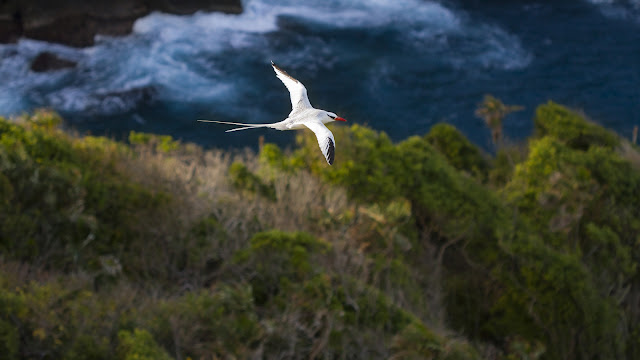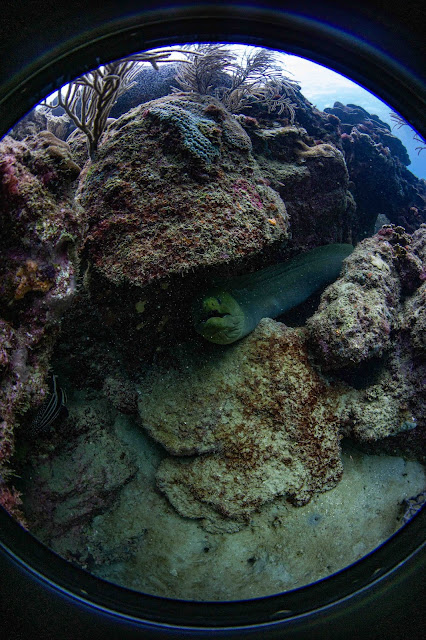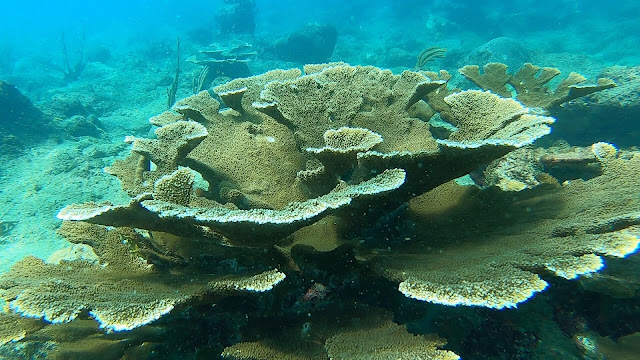Calling Mr Hook in Charlotteville
Curtis Antoine continues the fisherman’s lifestyle inherited from his father, passing it on to his son. He speaks with Dr Anjani Ganase, marine scientist and explains how he has adapted his business as harvests from the sea change.
The first time I worked with Curtis Antoine, he was introduced as “Amin” after the Uganda Dictator Idi Amin. This alias given to him during the days of Boy Scouts Jamborees in Trinidad for his serious demeanour stuck and labelled his intensity and the way he commanded attention. The Curtis I came to know is humble, courteous and wise. Safety on the sea is his key characteristic today and it is something he impresses on everyone that comes to his boat. Curtis and his son, Curtis Junior, are the owners-operators of Curtis Boat Tours.
Curtis grew up on the waters around and beyond Charlotteville. When he was supposed to be in school, he would sneak away with his father, who was a fisherman. The sea was his master teacher and he learned everything on the water – how to navigate the boat, catch fish and ultimately use his ocean backyard to provide for his family. He provided the same schooling for his son, who is now 24 years old, and is his father’s partner in running the business. A fisherman at heart, Curtis knows every nook and cranny of the coast and the deep ocean of north-east Tobago.

Father
and son, Curtis and Curtis Junior. Photo by Jonathan Gomez
Today, with over 40 years of fishing under his belt, Curtis reflects on the declines in the fish populations in the area. He continues to fish whenever he can, but Curtis has found other projects out on the water. During the nineties, he began taking divers out to explore the coral reefs. This led to working with marine scientists who would conduct surveys and research in the waters off north-east Tobago. He has worked with scientists from the University of Trinidad and Tobago, the Institute of Marine Affairs, and regularly partners with the Environmental Research Institute of Charlotteville on several research and restoration projects. Through these ventures Curtis has continued to learn from and about the sea.
What he now knows as coral bleaching, Curtis has witnessed first hand on the reefs: over the years he has seen the corals lose their colours whenever it gets too hot. Through working with researchers, he now understands the causes of the change, and as a result, he recognises the need to be ocean friendly in his business. Both Curtis and his son understand and welcome the need for fisheries management to protect critical species, such as the parrotfish as well as commercial species. He also appreciates the importance of managing waste to reduce marine pollution.
He is happy to learn from those academics who study and work in the ocean. In a continuous learning cycle, he combines new knowledge with his own experiences and shares practical information with everyone. “There are so many opportunities in the ocean. If there is no fish, there is still tourism – snorkelling, boat trips. And we can learn all about the birds that live around north-east Tobago.” The ocean is more than a business, it is a way of life, he tells me. “It’s hard to be lazy!”
Curtis Junior was born and raised in Charlotteville and found his heart in the sea. Like his father, he started fishing from an early age, and the work with his father became regular as he worked alongside on several projects after school. As soon as his father taught him to swim, he was free diving and marvelling at the wonders of the underwater world.
Curtis Junior said, “Everything underwater – its colours, the fishes, its structure, it is completely different from on land.” He is happiest at sea away from the bustle of society. One highlight of his time at sea is reeling in a 600 pound marlin for a fishing tournament in 2017 – a battle that took him half an hour. “This is a generational thing!” he says with pride, giving credit to his father. Curtis Senior couldn’t agree more, wishing that his father was still around to see the successes of the father-son team.

Curtis
Junior with Anjani on a dive expedition on board Mr Hook
Most recently, they renamed their boat when they needed to do repairs on it. Contemplating, Curtis Senior –who always wore a hook pendant around his neck in memory of his late daughter Samantha who also went fishing with him – suggested “fish hook.” They settled on “Mr Hook”, a cheeky twist to its sentimental meaning.
The ocean certainly taught Curtis how to be adaptive – go with the flow – and tap into opportunities when they come your way. Before the pandemic, Curtis Boat Tours thrived on international visitors that wanted a taste of the sweet Charlotteville life and sea. Today, most of the visitors are Trinis who rediscovered their sister island during the pandemic. It’s a good thing! New friendships are made and the opportunities to educate and live off the sea continue. Curtis Junior placed Curtis Boat Tours online tapping into the island adventure market on social media, and even partnered with several local tour guides and influencers. This has brought some income and both Curtises hope that the business will continue to grow in the near future.
Curtis Boat Tours conducts boat tours to the nearby bays of Charlotteville. They may also be chartered for fishing expeditions. They work with dive tour operators, birders and naturalists exploring the ocean backyard around northeast Tobago. Connect with them on social media: curtis_boattours.tt.

Anjani
with Curtis (left) and Welldon (right) from Environmental Research Institute of
Charlotteville. Photo by Jonathan Gomez



